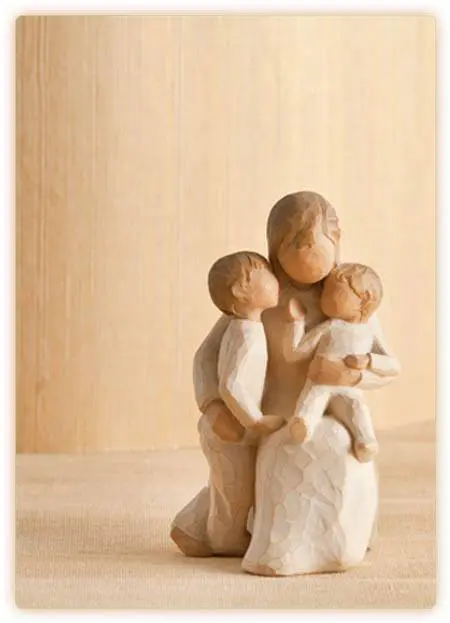“I’m scared to have another child because I love my first so fiercely. How will I have room in my heart for another without taking some love away from my first?”
“How is it even possible to love another child as much as I love my first baby?”
“What if my second is easier than my first was and I’ll love the second baby more?”
“My next baby is about to be born but I can’t stop feeling anxious and guilty, knowing my relationship with my first child is about to change and she has no idea.”
Do these worries sound familiar?
There’s no shame in feeling this way. Of course you are scared about welcoming another child into your heart because just like everything in parenting, this is another big unknown.
Do you remember how nervous you were to have your first? Do you remember the little thought in the back of your head, the worry you felt, about loving your husband and a new baby together? Of how your life would change due to less sleep, more responsibility, and a whole new body you would hardly recognize? Those were legitimate worries because having a child was a huge unknown. But you did it. You had your baby, your love grew, and you actually enjoyed it all (or most of it).
Then, learning to parent and everything that comes with it (how to change a diaper, how to breastfeed, how to fix an owie, or how to keep another human alive) were more unknowns you somehow got through and learned from. So welcoming another baby into your life and your heart would be another big, scary unknown. And when you feel like your first child and your husband already occupy all the space in your heart, it makes sense to wonder where another human being could fit. Loving more than one offspring does seem a strange concept.
But like many second or third (or eighth) time moms will tell you: your love will not divide with each child—it’ll multiply.
The first step is to accept this theory of “multiplied love” and to trust that the feeling will come to your heart. I know it seems hard to imagine loving multiple right now because your first is literally your entire world, but yes, it will come. You may begin feeling that expanded love when your morning sickness wears off. You may begin feeling it when you hear the next baby’s heartbeat for the first time. Or it may not come until after the baby is born and you see your oldest holding him in her arms on your hospital bed. But I promise, it will come eventually and until it does, you’ll have to have a little faith and trust that this heart-expanding love is on its way.
The next step in loving multiple children is to not compare experiences against each other. Your first may have slept through the night from day one, pooped on a schedule, and progressed faster than the average curve. Your second may be a tough baby, with acid reflux, a lip tie, and colic. But these experiences and the vast differences in their personalities are not a cause to love more or less between the two. They are just testaments to the uniqueness of each child you carry and bear. The differences and even similarities are examples of why you love each child individually instead of each partially. Each child will fill a hole you hadn’t realized existed and they will compliment each other so well that life will become even more complete.
The third step is to live in the moment. When you are lying in bed at night, the world is asleep and you alone can feel the hiccups of your unborn child, relish that moment. That is a chance to bond. That is a chance to grow your heart to welcome this next child.
When your first asks for a kiss on her hurt knee, relish that moment. That is a chance to focus on this individual child and how they want only you in their moment of pain. Your love for her and her reciprocated love is still intact.
And when your second is born, pause to watch your firstborn sing a song and give the baby a kiss. For that is a chance to see your heart on the outside of your body, and to witness the truth that it has grown, not divided.
If you’re currently worried how adding another child will affect your relationship with the children who are already here on earth, please have hope. Your relationships will, of course, adjust and alter as you add to your family. But remember: change isn’t always a bad thing. And with this type of change, you’ll have 9 months to get adjusted to your new and exciting reality!

